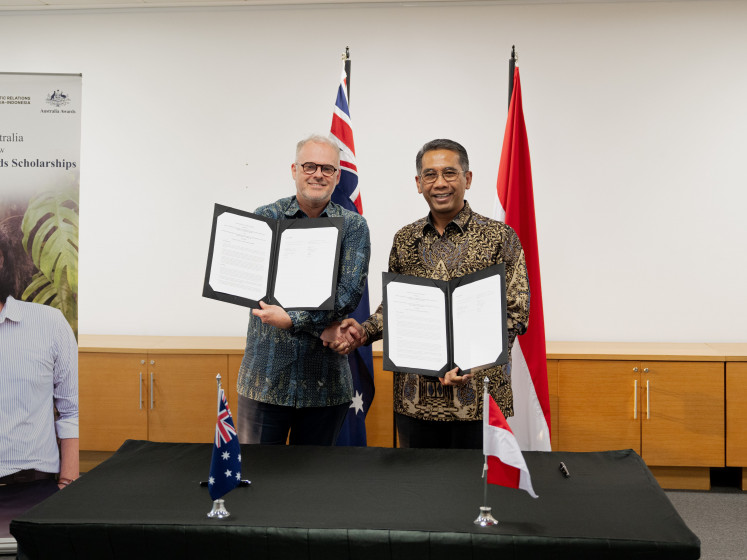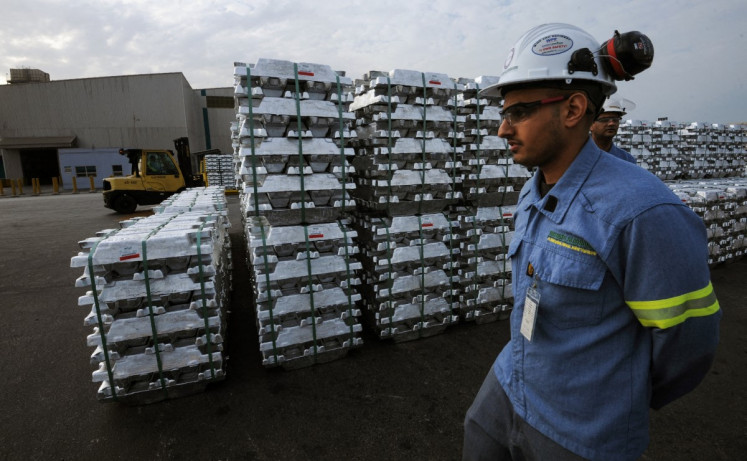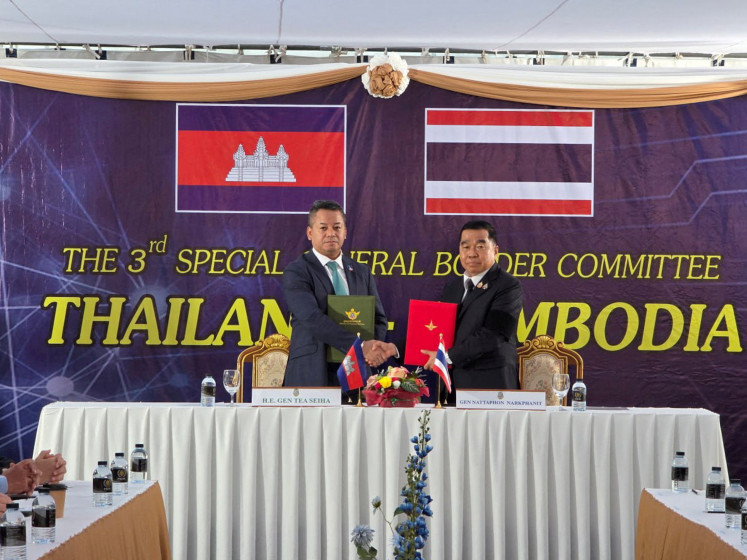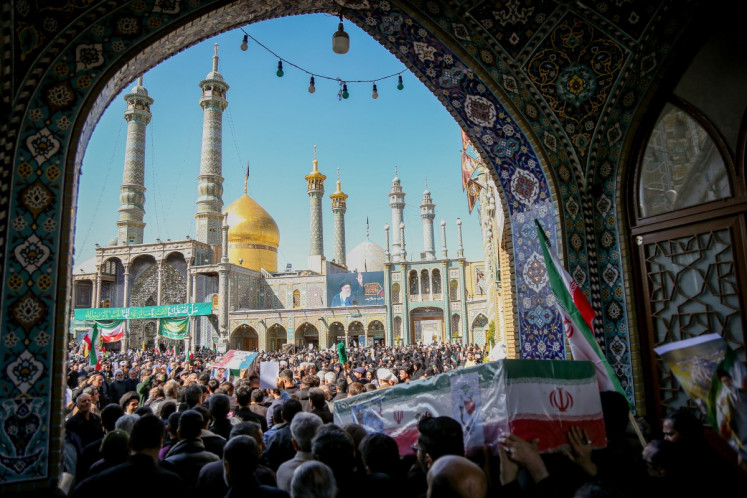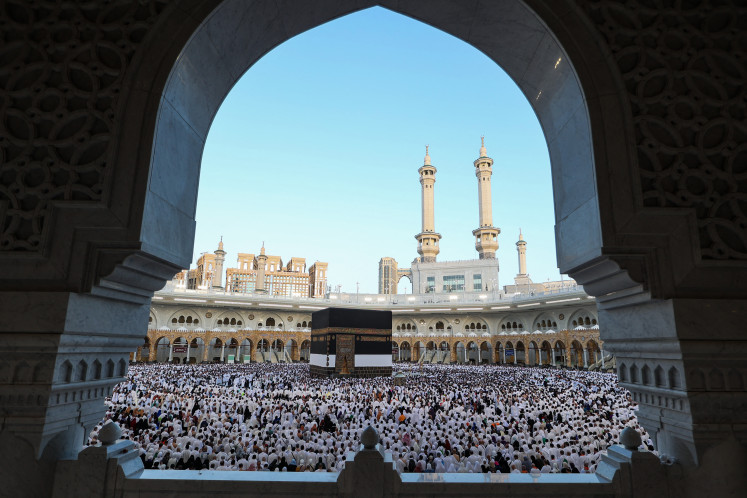Popular Reads
Top Results
Can't find what you're looking for?
View all search resultsPopular Reads
Top Results
Can't find what you're looking for?
View all search resultsTruth matters
Squeezed between big tech and populist politicians, it seemed that professional media was grabbing at space to breathe. Let us hope that this year's Nobel Peace Prize can help "reset" public appreciation and recognition of the free and independent press as fundamental to democracy and world peace.
Change text size
Gift Premium Articles
to Anyone
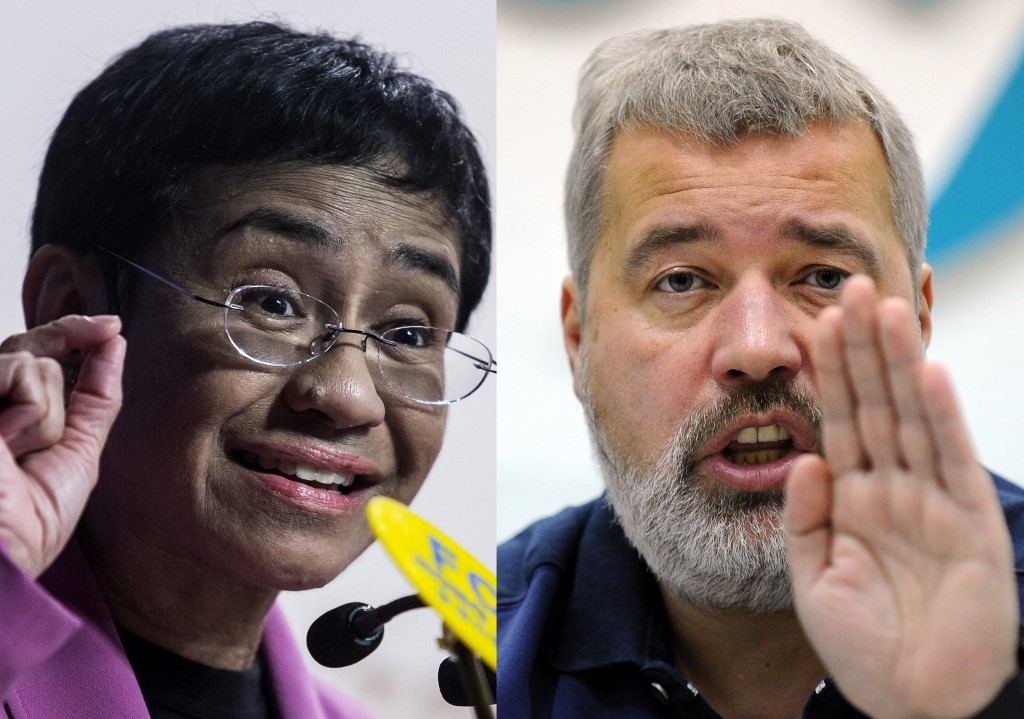 The Norwegian Nobel Committee awarded the 2021 Nobel Peace Prize to Maria Ressa (left), cofounder and CEO of the Philippine's investigative news media 'Rappler', and Dmitry Muratov, editor-in-chief of Russia's independent opposition newspaper 'Novaya Gazeta', in recognition of "their efforts to safeguard freedom of expression, which is a precondition for democracy and lasting peace". (AFP/Isaac Lawrence, Yuri Kadobnov )
The Norwegian Nobel Committee awarded the 2021 Nobel Peace Prize to Maria Ressa (left), cofounder and CEO of the Philippine's investigative news media 'Rappler', and Dmitry Muratov, editor-in-chief of Russia's independent opposition newspaper 'Novaya Gazeta', in recognition of "their efforts to safeguard freedom of expression, which is a precondition for democracy and lasting peace". (AFP/Isaac Lawrence, Yuri Kadobnov )
It has been a tough couple of decades for everyone in professional journalism, particularly in recent years.
The old way of doing business, with advertisers paying for placement in (quality) media publications, was rendered obsolete once tech giants found an ingenious way to use algorithms to make advertising more targeted and effective for businesses. And ever since tech giants found this “Holy Grail” formula, ad money for conventional media quickly dried up.
Last year, Google, Facebook, Alibaba, TikTok owner Bytedance and Amazon generated US$296 billion in combined ad sales to make up 46 percent of the market.
With less ad money going to pay for good journalism (yes, producing news costs money, from paying journalists to maintaining company servers, even if print media has been written off), many media outlets had little option but to downsize or shutter their operations.
Also, given that the ad algorithms incentivize “engagement” and clicks, media outlets had to resort to producing nontraditional content that could scandalize loyal readers that had been with them for decades.
In her testimony before the United States Congress, Facebook whistleblower Frances Haugen said the social networking company could have tweaked its algorithms to avoid prioritizing provocative content, but chose not to simply because the company wanted higher engagement, which was good for its bottom line.
So as media companies struggled financially, we were seeing a concurrent trend of some media companies going down the rabbit hole of conspiracy theories or peddling sensationalism just to stay afloat.
At the same time, mainstream media also had to deal with external pressure from politicians of the far-leaning populist ilk like Donald Trump, Jair Bolsonaro and Rodrigo Duterte, who politicized the media as their personal enemy or opposition, using mudslinging tactics like calling them “fake news” whenever the media didn’t cast them in a favorable light. In fact, these media outlets were simply doing their journalistic duty, providing accurate, factual and objective coverage to expose wrongdoings committed by those in power and demanding accountability.
In the Philippines, President Duterte sued a media outlet that was critical of his administration to bar it from operating and to send its editors to jail for some administrative reason or other.
As if labeling an entire media company “fake news” wasn’t enough, other so-called world leaders moved to jail journalists or put them at real risk of physical danger, even threats against their lives.
And it is against the backdrop of this twin assault from business and politics that we celebrate the awarding of the Nobel Peace Prize to journalists Maria Ressa of the Philippines and Dmitry Muratov of Russia for keeping the torch of press freedom burning.
Let us hope this serves as a wake-up call that we should not take professional journalism for granted, and that a free and independent press matters. That truth matters.




